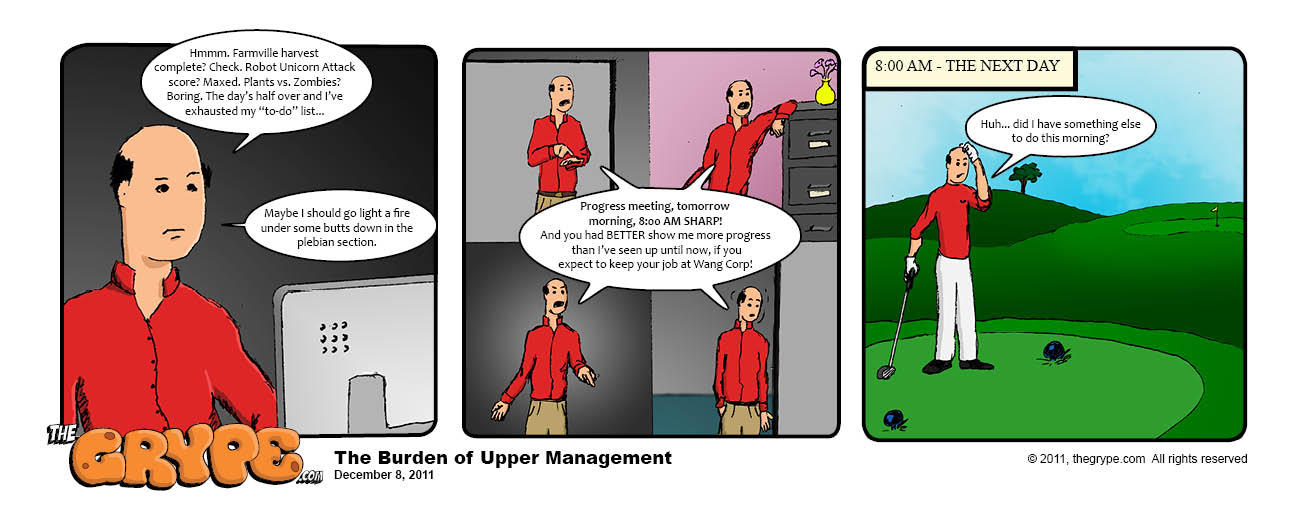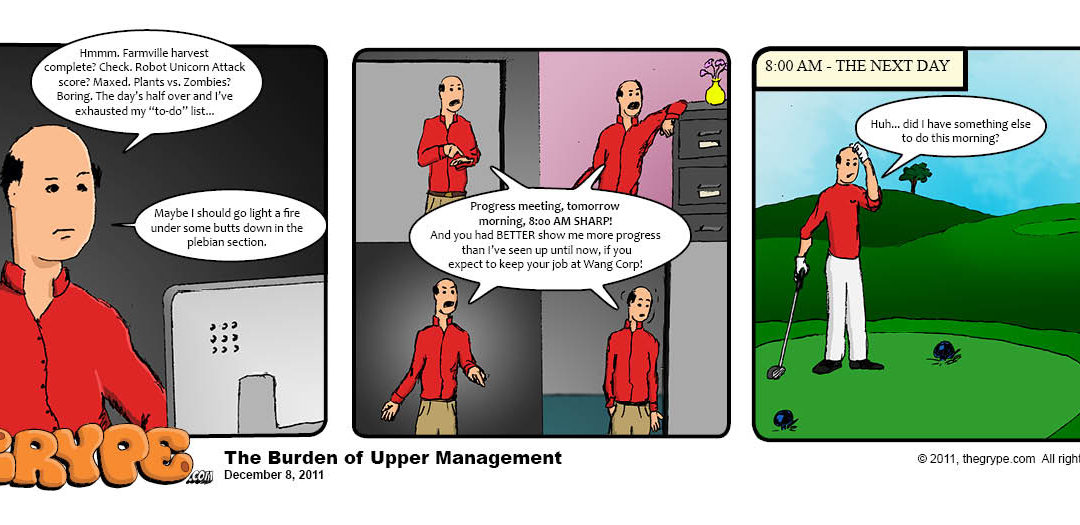 We’ve all heard the truism: “If ain’t broke, don’t fix it.” Which brings to mind a rather pernicious type of office mismanagement that consistently sabotages businesses and shatters the office tranquility of productive workers everywhere: I call it MANAGERIAL HYPER-PROACTIVITY SYNDROME.
We’ve all heard the truism: “If ain’t broke, don’t fix it.” Which brings to mind a rather pernicious type of office mismanagement that consistently sabotages businesses and shatters the office tranquility of productive workers everywhere: I call it MANAGERIAL HYPER-PROACTIVITY SYNDROME.
This occurs when a manager or director feels compelled to proactively micro-manage their subordinates at all times… even when there is no need for managerial input. They waste reams of paper drafting extensive reports seeking faults in processes that are working perfectly; they preside over endless meetings rehashing points that have already been settled, doggedly winnowing for flaws and casting blame, as if the successful operation of their own business is somehow a personal affront to them.
The thing is… despite the horrendous tendency for business activity to lapse into a chaotically inefficient comedy of errors, sometimes (gasp!) things ACTUALLY function as planned. Occasionally everything runs perfectly, and all subordinate employees have the situation fully under control and well in hand, each completely fulfilling his responsibilities while business booms and all goes swimmingly. In such a situation, there is NO NEED TO INTERFERE.
Enter the hyper-proactive Project Director/Middle Manager/Upper Level Corporate Exec. They’ve had a hardcore work ethic drilled into their heads since the day they punched their first time card, and are determined NEVER to rest on their laurels… “productivity” is their mantra, and they are determined to be “self-starters” at all costs. If in middle management, they may be justifiably paranoid (even a bit desperate) concerning their position in the corporate structure. They know that energetic, active “go-getters” are fast-tracked for raises and promotions; hence they strive to be such go-getters, insisting that all work in their departments be performed with a “sense of urgency.” Often the actual speed or quality of work being done is not important; what they want is for everyone to LOOK busy, all the time, even if that means looking busier than they actually ARE.
So they dream up new ways to “power-manage” their subordinates, whether or not such management is necessary. In an effort to validate their continued existence they become unreasonably demanding and hard to please; they invent unnecessary “busy work” in order to invigorate the work process (but which often simply wastes time by inefficiently diverting the attention of workers from more important duties).
Sometimes, purposely engendering a false sense of “urgency” in the business environment is the worst thing to do. In any business that requires careful calculation or meticulous operation, speeding up the process opens the door for errors made in haste. It doesn’t matter if a manager can browbeat his crew into manufacturing twice as many products in a daily shift than other managers, if all of the resulting products are so poorly-made they wind up on the scrap heap.
Theoretically EFFICIENCY should be the Holy Grail of industry, if only because it translates into more bang for the buck. But in some business environments an ugly brand of brutish institutional inefficiency has become so deeply ingrained it is almost comical— as bands of clipboard-wielding white-collared taskmasters glare intimidatingly at their subordinates and prod them into doing shoddy, panicky work. Worse, such corporate bullies are often inappropriately rewarded for their terrorist tactics with raises and promotions.
But the anger and discontent that trickles down from the corner offices of such assholes is nothing compared to the ultimate cost to corporate well-being caused by such bullying behavior in the long run. No one really wants to work in that type of environment for long.
When confronted by such personalities, I find myself paraphrasing a line spoken by Harvey Keitel in From Dusk ‘Til Dawn, expressing his exasperation at a bully’s use of threats… even when there seemed no reason for such abuse.
Are hyper-proactive abusive corporate micro-managers such big losers that they can’t tell when their team is winning?
Apparently so.

